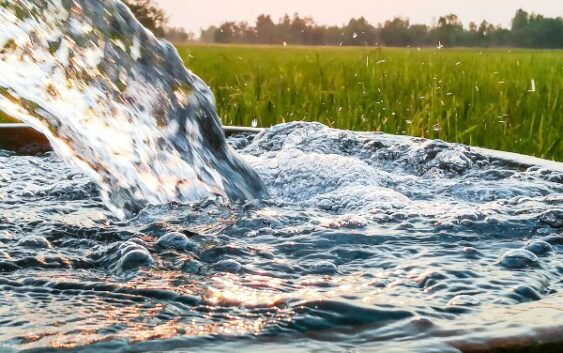- HOW TEMANE-MAPUTO ELECTRICITY TRANSMISSION LINE PROJECT IS GOING THROUGH TEST IN MOZAMBIQUE
- NEWLY OPENED PLASTIC RECYCLING PLANT SET TO HELP COMBAT NAMIBIA's PLASTIC INDUSTRY
- PROGRESS MADE ON PIIM PROJECTS AS OVER 85% COMPLETED IN ANGOLA
- WORLD BANK KICK-OFF INSPECTION OF USMID PROGRAM IN UGANDA
- ALGERIA MINISTER RECIEVED HARBOR ENERGY CEO OVER ENERGY PARTNERSHIP
HOW FIVE SMALL CHANGES THAT CAN HELP SOUTH AFRICA WATER RESOURCES LAST

The primary objective of Earth Day, celebrated globally on April 22 this year, is to promote sustainability and conservation with projects focusing on carbon emissions, protecting endangered species and the preservation of habitats.
But, encouraging people to think about how their actions impact the Earth in the long-term and making behaviour changes to reduce their consumption is as important.
This is the view of South African National Bottled Water Association CEO, Charlotte Metcalf, who has prepared five simple changes South Africans can make to their behaviour to help ensure South Africa’s water resources last.
- Turn off the tap when you brush your teeth. Running taps waste as much as 6 litres of water a minute so turn off the tap when you are brushing your teeth and fill a glass to use when you rinse.
- Switch to a dishwasher if you can. Switching from handwashing to dishwashing saves 6000L a year – and not pre-rinsing your dishes before they go in saves another 1000L every year.
- If you cannot switch to a machine, wash your dishes once a day. Letting the dishes pile up and washing the cleaner dishes first means you are unlikely to need to change the water and will save water because you will not be washing everything under the tap during the course of the day.
- Use your leftover cooking water to water your plants. Remember to let it cool, though!
- Fix those drips you see or hear when your taps are supposed to be fully off. And check those you do not often see – like those under the sink, in the laundry or in the garden – as well as your toilet.
“South Africa is a water-scarce country, so it is everyone’s responsibility to adopt sensible water-saving behaviours,” said Metcalf. “The five behaviours SANBWA is promoting this Earth Day are a good start; but SANBWA would be delighted if you’d consider doing more. Read this to up your game to 25!”
SANBWA’s environmental policy encourages members to improve their environmental stewardship with respect to water to ensure effective water management-cradle to grave, including source protection, efficient water usage and responsible effluent practices.
Before bottlers of natural waters are accepted as SANBWA members, they are required, among other things, to engage a qualified hydrogeologist (a geologist who has specialised in the field of groundwater) to prepare a hydrogeologist report.
“This report must properly describe the water source and certify that the resource supplying the bottling plant is both sustainable and free from any pollution potential and sustainable. This can be regarded as a first step on the path of water stewardship,” said Metcalf.
“The next logical step is to identify the bottlers’ water footprints, identify the areas where water is used, and set targets of reduction. Part of this work has already been done: we know that South African industry benchmark is 1.8:1, but there are plants that achieve ratios of as low as 1.3:1 – 1.4:1 by recycling their bottle rinse water. By comparing the practices at those plants achieving 1.3:1 with those achieving higher water ratios to determine, we set benchmarks all our members can follow.
“In this way, the quality of members’ bottled water meets local legislation and internationally accepted standards, and the SANBWA logo on a bottle is a seal of quality and safety, legally compliant and environmentally responsible packaged water.”
SANBWA members brands are: Aqua Monte, aQuellé, Bené, Bonaqua, Nestlé Pure Life, Dargle Water, Designer Water, Aquabella, Fontein, La Vie De Luc, Thirsti and Valpré.
SOURCE: InfrastructureNews

